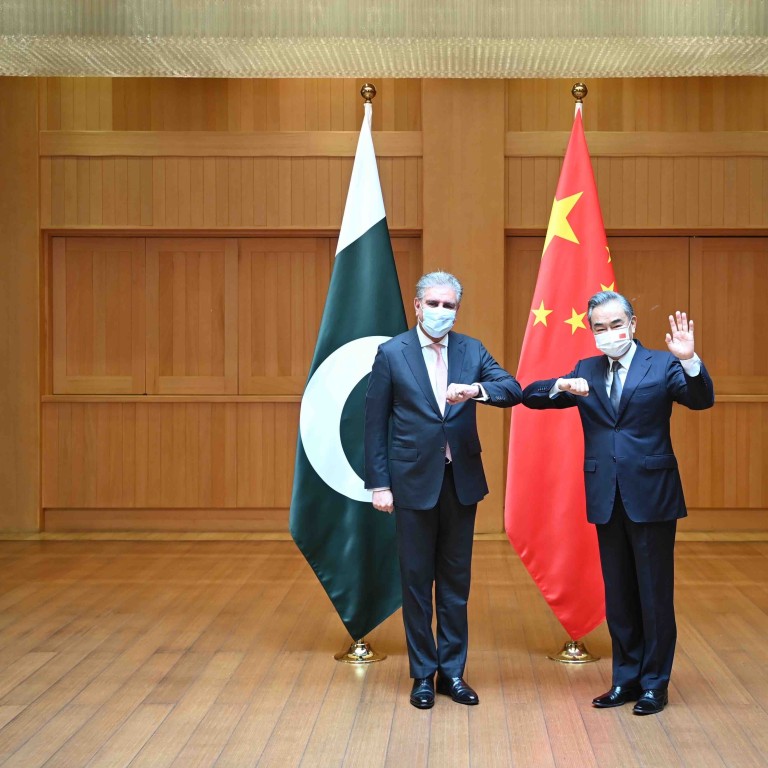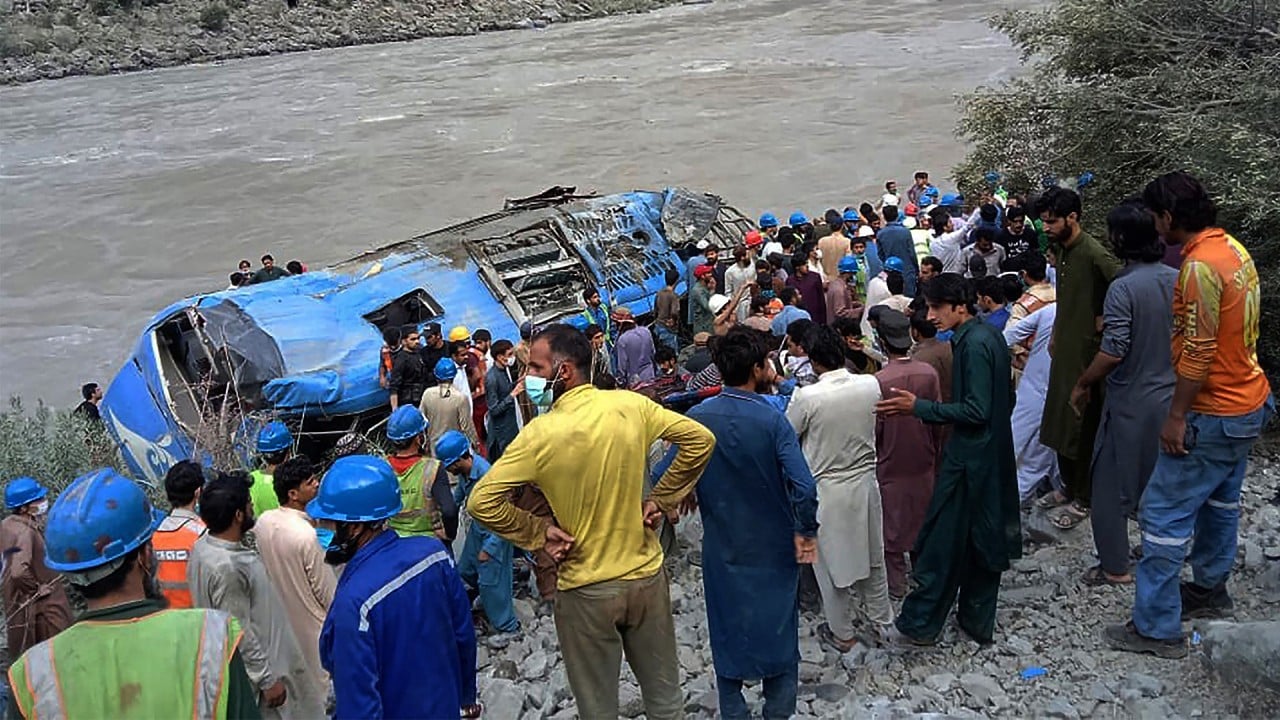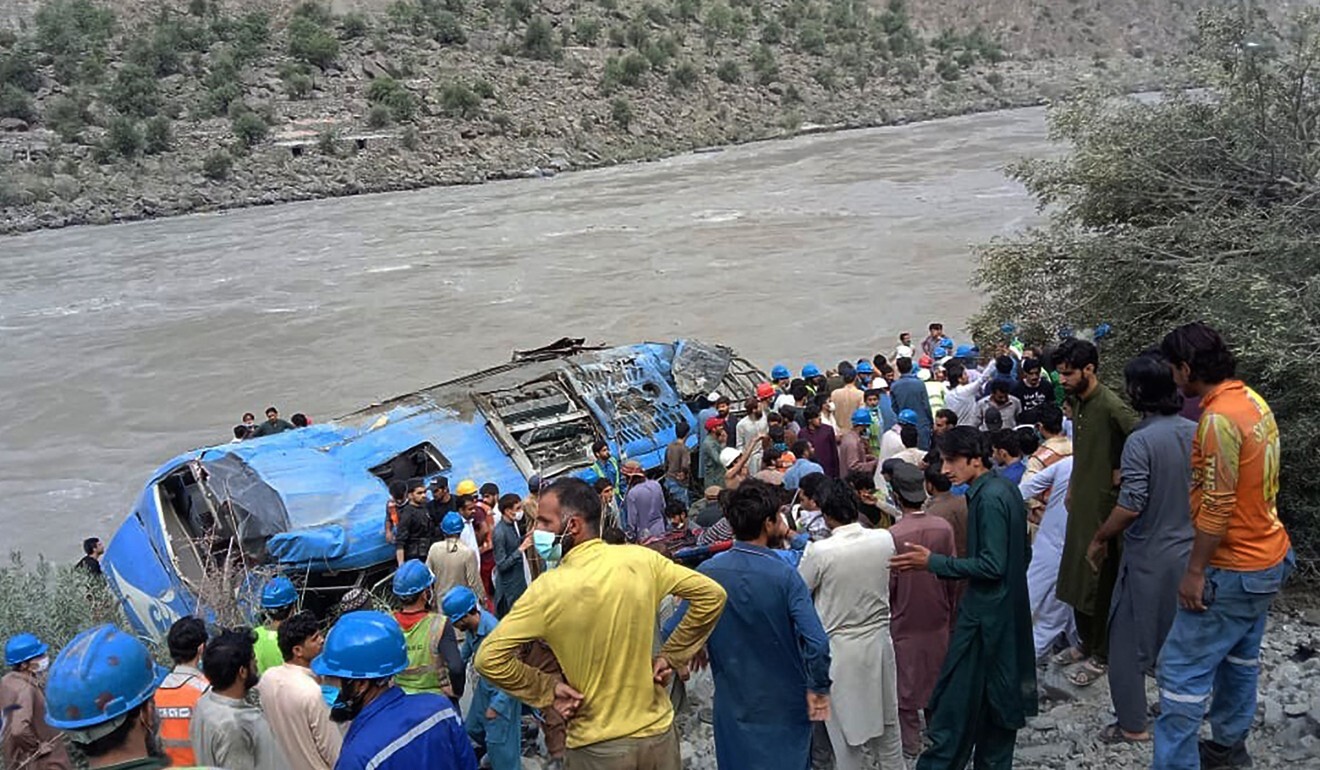
China and Pakistan to upgrade security after fatal bus blast ‘test’ of ties
- Beijing says its citizens must not ‘die in vain’ and security improvements must be made to thwart terrorism
- Explosion of workers on Daso hydropower project thrusts Chinese investment under spotlight
“Chinese citizens will not die in vain and the China-Pakistan partnership will be stronger through this test,” the two countries said in a joint statement released by China’s foreign ministry on Sunday.
The two nations were determined to identify the culprits “through the ongoing joint investigation, get them severely punished and fully ensure the safety of Chinese projects, personnel and institutions”.

01:51
Nine Chinese nationals among 13 killed in Pakistan bus blast
After a meeting in the Chinese city of Chengdu on Saturday, Foreign Minister Wang Yi said security measures for Chinese personnel, institutions and projects in Pakistan must be improved and upgraded.
His Pakistani counterpart, Shah Mahmood Qureshi, said his country would “protect Chinese citizens in Pakistan as if they were its own people”.
The strategic dialogue – the third such meeting between the two men since July 2019 – came 10 days after a blast in Pakistan’s northwestern Khyber Pakhtunkhwa province sent the bus hurtling into a ravine.

Winning Hearts and Minds: China’s Belt and Road Initiative
This weekend the two sides condemned the terrorist attack while pledging to “build the corridor as a regional transport hub”.
After Saturday’s meeting, Wang described the blast as the “largest terror attack conducted against Chinese nationals overseas” and urged the Pakistani side to “use every force and means” to punish those accountable.
“China is ready to provide all necessary assistance and cooperation. No matter what the motives of the organisations responsible, where they are and what forces they are sheltered by, they must be pursued to the end and severely punished,” Wang said.
Qureshi said a special force would be restructured to strengthen the protection of Chinese organisations and their staff.
Stability in Afghanistan was also high on the agenda in Saturday’s meeting.
China names Afghanistan special envoy as it prepares to play greater role
Both neighbours to Afghanistan, China and Pakistan were “most directly affected by situations” in the war-torn country, where the US troop withdrawal had created nothing but “a new security black hole”, Wang said, according to the Chinese foreign ministry.
He said preventing another round of domestic conflict in Afghanistan would be the top priority and said China and Pakistan would “join hands with Afghanistan and push the major Afghan forces to draw a clear line under terrorism”.
From Pakistan to Zambia, how does China pick its ‘ironclad’ friends?
The two nations would work with Afghanistan, he said, “to resolutely fight against terrorist forces such as the East Turkestan Islamic Movement (ETIM) and to resolutely prevent Afghanistan from becoming a source of terrorism once again”.
Wang and Qureshi met on the day of the bus blast too, after it happened, on the sidelines of a foreign ministers’ summit of the Shanghai Cooperation Organisation in Dushanbe, the capital of Tajikistan.
Sunday’s statement also said China and Pakistan agreed to advance economic, security and vaccine cooperation.

